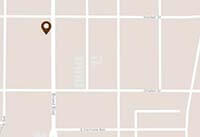
Bariatric Surgery Increases as the Coronavirus Pandemic Persists
Numerous studies have shown how excess body fat affects the immune system and those with a BMI of over 30 are more susceptible to contracting the virus and suffering from complications. With the pandemic looming over the nation’s head, the American people are seeking bariatric surgery as a preventative measure against the deadly ramifications associated with obesity and coronavirus.
When the overwhelming fear of death from Covid-19 plagues the minds of those from across the globe, people begin to evaluate what is most important to them and find adaptive ways to cope with the pandemic. When a greater risk of severe illness and even one’s life are on the line, the desire for accelerated weight loss strikes up a formidable motivation to shed those excess pounds.
Coronavirus and Obesity
For those who struggle with obesity, the potential risk of coronavirus raises dramatically. Experts have shown that those who have a high BMI have a greater chance of serious health complications if they contract the virus. Excess weight hinders the immune system which can lead to an increased risk of kidney failure, cardiac arrest, and other chronic conditions. Symptoms of obesity such as high blood pressure, abnormal cholesterol levels, diabetes, and shortness of breath could lead to important implications. Infected patients are approximately twice as likely to end up in the hospital for acute or critical care which could lead to them being hooked up to a ventilator. Due to the increased risk of severe illness, the probability of death also rise
New Motivation to Lose weight
Thousands of people who struggle with obesity are turning to bariatric surgery to make their goals of weight loss a reality. As the number of COVID-19 cases increase and feelings of impending doom surge, individualized goals for weight loss are that much more important. The United Healthcare and Cigna have reported a 20% increase in the demand for weight loss procedures. People are trying to lower their chances of detrimental outcomes if they do contract the coronavirus. By lowering their BMI, they substantially reduce their chances of chronic illness and death.
Bariatric Surgery on the Rise
We live in a society that promotes instant gratification and it’s no different when it comes to weight loss. Unfortunately, when diets and exercise don’t produce quick results, people become discouraged and give up on their new routine. Bariatric surgery is a great alternative because it produces fast results and is effective in keeping the weight off, contributing to a healthier lifestyle. As people become more aware of their own habits and how it affects their immune system in this midst of the pandemic, they are realizing they need to make some of their own changes to reduce chances of serious illness and death. People are making weight management a priority prompting a critical rise in bariatric surgery demand.
Weight Loss Surgery Options
Bariatric surgery is an operation that alters your digestive system to aid in weight loss by restricting the stomach’s capacity for holding food. Currently, the most common types of bariatric surgery involve the Lap Band, the Gastric Sleeve, and the Gastric Balloon.

Lap Band
The Lap Band is a simple, laparoscopic, outpatient procedure where the surgeon wraps a ring shaped, inflatable, adjustable band around the upper portion of the stomach. The band squeezes the top part of the stomach creating a small opening for food to pass through to be digested. This makes the patient feel less hungry, achieve satisfaction with smaller meals and lose weight easily and quickly. The Lap Band is an adjustable device that tightens and loosens, thus adapting to the person’s needs. The patient could come back, for example if they’re pregnant, or after they’ve met their weight loss goal, and have their doctor decrease the Lap Band tightness. Alternatively, if one is not satisfied with the pace or the amount of their weight loss, it’s easy to tighten the band in the office and get better results. Another benefit is that the surgeon doesn’t need to cut or staple any part of the stomach and the band will achieve major and sustained weight loss without all the risks associated with stomach stapling or cutting.
Gastric Sleeve
The Gastric Sleeve is a highly effective, weight loss operation where small incisions are created on the abdomen to gain access to the stomach. The surgeon examines the abdominal cavity using a laparoscope or video camera. The average stomach can hold up to one to one and a half liters of food. While the food is in the stomach, it is mixed with digestive enzymes to fuse into a more simple form to facilitate digestion. During a sleeve gastrectomy, the stomach is cut and reduced to the size of a banana. That is done by an instrument that fires three rows of staples and cuts between them creating a narrow “sleeve” of stomach that decreases the size of the stomach, that can hold only
50-100 milliliters. By drastically reducing the dimensions of the stomach, there is a significant decrease of oral intake resulting in weight loss. Additionally, the 80% of the stomach that is removed is known to produce a hormone called Ghrelin, which is responsible for sending signals to the brain signaling hunger. Thus the reduction of Ghrelin leads to faster weight loss and produces great results for patients with morbid obesity. The advantage of the Gastric Sleeve is that none of the organs are rerouted, as in gastric bypass, and there is no foreign body or need for repeated adjustments as in Lap Band. However, Gastric Sleeve has a higher risk of serious complications than Lap Band.

Gastric Balloon
The Gastric Balloon is a minimally invasive, non-surgical, endoscopic procedure where a balloon is placed in the stomach occupying space and causing the sensation of fullness. It is placed in the stomach in a deflated state while the patient is dozing off under sedation and inflated with saline to the size of a grapefruit. It is deployed and sits in the stomach for up to six months where the patient learns to eat less, achieve satiety quicker, and lose weight with the reduction of stomach size. This encourages portion control and helps people lose more weight in a brief amount of time. After the six month period, the balloon is deflated in the stomach and brought up through the mouth. It is a quick procedure lasting only around thirty minutes and can yield significant weight loss, without any major risks.

If you are interested in non-surgical weight loss procedures, like the Gastric Balloon, Lap Band, or Gastric Sleeve, Davtyan Medical Weight Loss And Wellness provides excellent, experienced and compassionate care. Dr. David Davtyan and his highly trained staff will be with you every step of the way. You can visit us at one of our convenient locations in Rancho Cucamonga, Glendale, and Beverly Hills. To schedule your initial complimentary consultation, contact us at 877-9-BE-SLIM (877-923-7546). Your weight loss is a personal journey and we are here for you. Take the first step today.






